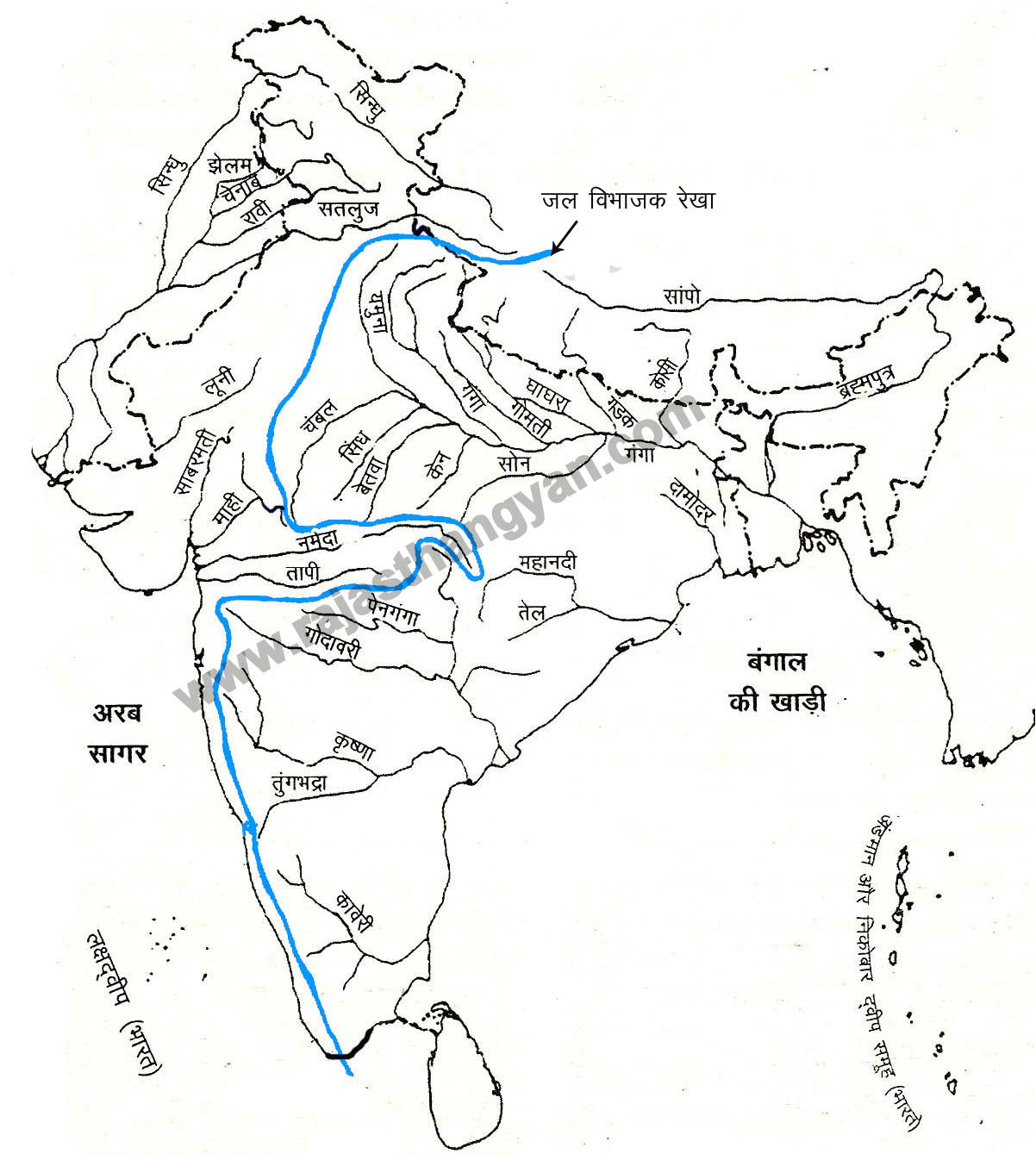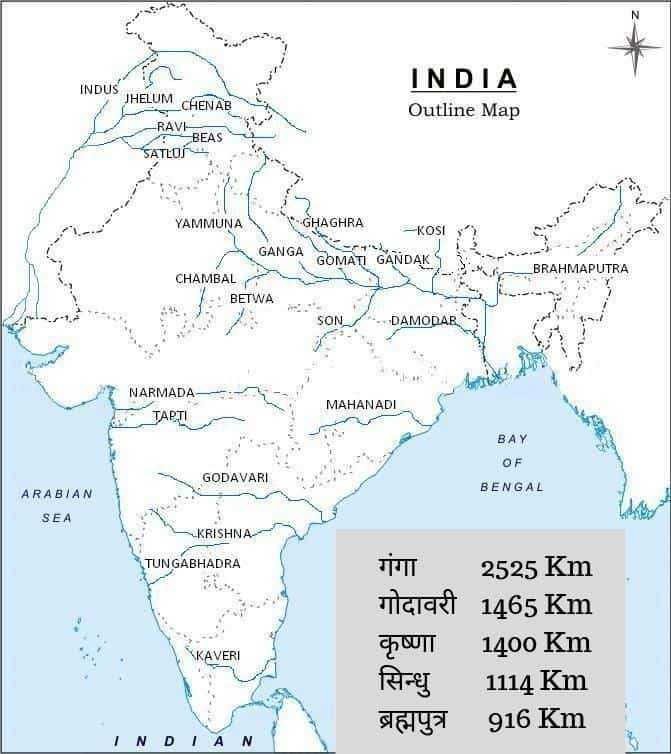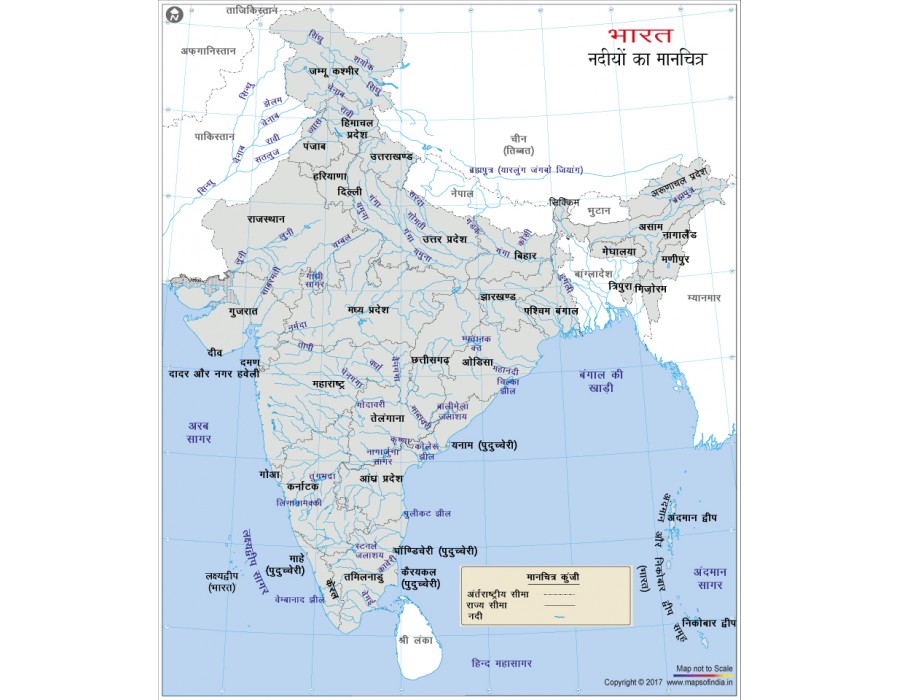BHARAT KEE RIVERS & NADHIA
For All User.





KNOW ABOUT INDIA RIVERS
The rivers of India can be characterized into four gatherings viz., Himalayan rivers, Deccan rivers, Coastal rivers, and Rivers of the inland seepage basin.

भारत की नदियों को चार सभाओं, हिमालयी नदियों, दक्कन की नदियों, तटीय नदियों और अंतर्देशीय सीपेज बेसिन की नदियों की विशेषता दी जा सकती है।
The Himalayan Rivers are framed by liquefying day off icy masses and in this way, ceaselessly stream consistently. During the rainstorm months, Himalayas get exceptionally overwhelming precipitation and rivers swell, causing incessant floods. The Deccan Rivers then again are downpour encouraged and along these lines change in volume. A significant number of these are non-perpetual. The Coastal streams, particularly on the west coast are short long and have restricted catchment's regions. A large portion of them are non-lasting. The surges of inland waste basin of western Rajasthan are not many. The greater part of them are of a vaporous character.
हिमालयी नदियों को बर्फीले द्रव्यमान से द्रवीभूत करके और इस तरह से, लगातार धारा प्रवाहित किया जाता है। वर्षा के महीनों के दौरान, हिमालय में असाधारण रूप से अत्यधिक वर्षा होती है और नदियाँ बहती हैं, जिससे लगातार बाढ़ आती है। दक्कन की नदियाँ फिर से नीचे की ओर प्रोत्साहित होती हैं और इन रेखाओं के साथ आयतन में परिवर्तन होता है। इनमें से एक महत्वपूर्ण संख्या गैर-स्थायी है। विशेष रूप से पश्चिमी तट पर तटीय धाराएँ लंबी हैं और इनमें जलग्रहण क्षेत्र सीमित हैं। उनमें से एक बड़ा हिस्सा गैर-स्थायी है। पश्चिमी राजस्थान के अंतर्देशीय अपशिष्ट बेसिन की वृद्धि कई नहीं हैं। उनमें से अधिक हिस्सा एक वाष्पशील चरित्र के हैं।
The primary Himalayan stream frameworks are those of the Indus and the Ganga-Brahmaputra-Meghna framework. The Indus, which is one of the incredible rivers of the world, ascents near Mansarovar in Tibet and courses through India, and from that point through Pakistan, lastly falls in the Arabian Sea near Karachi. Its important tributaries flowing in Indian Territory are the Sutlej (starting in Tibet), the Beas, the Ravi, the Chenab, and the Jhelum. The Ganga-Brahmaputra-Meghna is another important arrangement of which the chief sub-basins are those of Bhagirathi and the Alaknanda, which join at Dev Prayag to frame the Ganga. It navigates through Uttarakhand, Uttar Pradesh, Bihar, and West Bengal. Beneath Rajmahal slopes, the Bhagirathi, which used to be the principle course before, takes off, while the Padma proceeds with eastbound and enters Bangladesh. The Yamuna, the Ramganga, the Ghaghra, the Gandak, the Kosi, the Mahananda and the Sone are the important tributaries of the Ganga. Rivers Chambal and Betwa are the important sub-tributaries, which join Yamuna before it meets the Ganga. The Padma and the Brahmaputra join inside Bangladesh, and keep on flowing as the Padma or Ganga. The Brahmaputra ascends in Tibet, where it is known as Tsangpo and runs a long separation till it traverses into India in Arunachal Pradesh under the name of Dihang. Near Passighat, the Debang and Lohit join the stream Brahmaputra and the consolidated waterway runs up and down the Assam in a restricted valley. It crosses into Bangladesh downstream of Dhubri.
प्राथमिक हिमालयी धारा के ढांचे सिंधु और गंगा-ब्रह्मपुत्र-मेघना ढांचे के हैं। सिंधु, जो दुनिया की अविश्वसनीय नदियों में से एक है, तिब्बत के मानसरोवर के पास और भारत के माध्यम से पाठ्यक्रमों में प्रवेश करती है, और उस बिंदु से पाकिस्तान के माध्यम से, अंतिम रूप से कराची के पास अरब सागर में गिरती है। भारतीय क्षेत्र में बहने वाली इसकी महत्वपूर्ण सहायक नदियाँ सतलज (तिब्बत में शुरू), ब्यास, रावी, चिनाब और झेलम हैं। गंगा-ब्रह्मपुत्र-मेघना एक अन्य महत्वपूर्ण व्यवस्था है, जिसमें मुख्य उप-घाटियाँ भागीरथी और अलकनंदा हैं, जो गंगा की संरचना करने के लिए देव प्रयाग में शामिल होती हैं। यह उत्तराखंड, उत्तर प्रदेश, बिहार और पश्चिम बंगाल से होकर गुजरती है। राजमहल ढलानों के नीचे, भागीरथी, जो पहले सिद्धांत का कोर्स हुआ करती थी, बंद हो जाती है, जबकि पद्मा पूर्व की ओर निकलती है और बांग्लादेश में प्रवेश करती है। यमुना, रामगंगा, घाघरा, गंडक, कोसी, महानंदा और सोन गंगा की महत्वपूर्ण सहायक नदियाँ हैं। नदियाँ चंबल और बेतवा महत्वपूर्ण उप सहायक नदियाँ हैं, जो गंगा से मिलने से पहले यमुना में मिलती हैं। पद्म और ब्रह्मपुत्र बांग्लादेश के अंदर शामिल होते हैं, और पद्मा या गंगा के रूप में बहते रहते हैं। ब्रह्मपुत्र तिब्बत में चढ़ता है, जहां इसे त्सांगपो के रूप में जाना जाता है और यह दिहांग के नाम से अरुणाचल प्रदेश में भारत में आने तक एक लंबा अलगाव करता है। पासीघाट के पास, देबांग और लोहित धारा ब्रह्मपुत्र में मिलती हैं और समेकित जलमार्ग असम में प्रतिबंधित घाटी में ऊपर और नीचे चलता है। यह धुबरी के नीचे की ओर बांग्लादेश में पहुँच जाता है

The essential tributaries of Brahmaputra in India are the Subansiri, Jia Bhareli, Dhansiri, Puthimari, Pagladiya and the Manas. The Brahmaputra in Bangladesh gets the progression of Tista, and so on., lastly falls into Ganga. The Barak River, the Head stream of Meghna, ascends in the slopes in Manipur. The important tributaries of the waterway are Makku, Trang, Tuivai, Jiri, Sonai, Rukni, Katakhal, Dhaleswari, Langachini, Maduva and Jatinga. Barak proceeds in Bangladesh till the consolidated Ganga-Brahmaputra join it near Bhairab Bazar.
भारत में ब्रह्मपुत्र की आवश्यक सहायक नदियाँ सुबानसिरी, जिया भरेली, धनसिरी, पुथिमारी, पगलादिया और मानस हैं। बांग्लादेश में ब्रह्मपुत्र को तिस्ता की प्रगति मिलती है, और इसी तरह, अंतिम रूप से गंगा में गिरती है। मेघना की प्रमुख धारा बराक नदी, मणिपुर में ढलान में चढ़ती है। जलमार्ग की महत्वपूर्ण सहायक नदियाँ मक्कू, त्रंग, तिवई, झिरी, सोनई, रुक्नी, कटखल, धलेश्वरी, लंगचीनी, मडुवा और जटिंगा हैं। बांग्लादेश में बराक तब तक आगे बढ़ता है जब तक गंगा-ब्रह्मपुत्र भैरब बाजार के पास इसमें शामिल नहीं हो जाते।
In the Deccan area, the greater part of the significant stream frameworks flowing for the most part east way fall into Bay of Bengal. The significant east flowing rivers are Godavari, Krishna, Cauvery, Mahanadi, and so on. Narmada and Tapti are significant West flowing rivers.
गंगा की सहायक नदियाँ :-

दक्कन क्षेत्र में, पूर्वी भाग के लिए बहने वाली महत्वपूर्ण धारा चौखटों का बड़ा हिस्सा बंगाल की खाड़ी में गिरता है। गोदावरी, कृष्णा, कावेरी, महानदी इत्यादि महत्वपूर्ण पूर्व में बहने वाली नदियाँ हैं। नर्मदा और ताप्ती पश्चिम की ओर बहने वाली महत्वपूर्ण नदियाँ हैं।
The Godavari in the southern Peninsula has the second biggest stream basin covering 10 percent of the zone of India. Beside it is the Krishna basin in the district, while the Mahanadi has the third biggest basin. The basin of the Narmada in the uplands of the Deccan, flowing to the Arabian Sea, and of the Kaveri in the south, falling into the Bay of Bengal are about a similar size, however with various character and shape.
दक्षिणी प्रायद्वीप में गोदावरी भारत के 10 प्रतिशत क्षेत्र को कवर करने वाली दूसरी सबसे बड़ी जलधारा है। इसके अलावा जिले में कृष्णा बेसिन है, जबकि महानदी में तीसरा सबसे बड़ा बेसिन है। दक्कन के ऊपर के इलाकों में नर्मदा का बेसिन, अरब सागर में बहता है, और दक्षिण में कावेरी, बंगाल की खाड़ी में गिरता है, एक समान आकार के होते हैं, हालांकि विभिन्न चरित्र और आकार के साथ।

There are various seaside rivers, which are similarly little. While just bunch of such rivers channel into the sea near the delta of east cost, there are upwards of 600 such rivers on the west coast.
विभिन्न समुद्र तटीय नदियाँ हैं, जो इसी तरह कम हैं। जबकि पूर्वी लागत के डेल्टा के पास समुद्र में ऐसी नदियों का सिर्फ गुच्छा होता है, पश्चिमी तट पर 600 ऐसी नदियों के ऊपर हैं
A couple of rivers in Rajasthan don't deplete into the sea. They channel into salt lakes and lose all sense of direction in sand with no outlet to sea. Other than these, there are the Desert Rivers which stream for some separation and are lost in the desert. These are Luni and others, for example, Machhu, Rupen, Saraswati, Banas and Ghaggar.
राजस्थान की कुछ नदियाँ समुद्र में नहीं जातीं। वे नमक की झीलों में चैनल बनाते हैं और समुद्र में बिना किसी आउटलेट के साथ रेत में दिशा के सभी अर्थ खो देते हैं। इनके अलावा, रेगिस्तानी नदियाँ हैं जो कुछ अलग होने के लिए प्रवाहित होती हैं और रेगिस्तान में खो जाती हैं। ये लुनी और अन्य हैं, उदाहरण के लिए, माछू, रूपेन, सरस्वती, बनास और घग्गर।
Comments